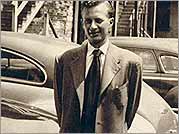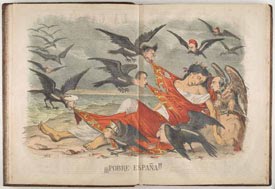 Tomorrow, the Franklin Research Center will host Dr. Andrew Kahrl, who will present”Losing the Land: African American Ownership of Coastal Property.” We asked him a few questions in anticipation of his talk, which is based on his research in our Behind the Veil oral histories collection.
Tomorrow, the Franklin Research Center will host Dr. Andrew Kahrl, who will present”Losing the Land: African American Ownership of Coastal Property.” We asked him a few questions in anticipation of his talk, which is based on his research in our Behind the Veil oral histories collection.
Q: Could you give us a preview of your talk?
Andrew: I’m going to trace the history of African American coastal land ownership from the late 19th century to the present in order to better understand the relationship between race and real estate development in the making of the modern Sunbelt South and the long civil rights movement.
I plan to discuss the rise of coastal black landownership in the post-emancipation era; African Americans’ economic and emotional investment in coastal property and leisure space under Jim Crow; and the impact of changes to the region’s political economy on black landownership and notions of land-based empowerment. I’ll highlight some of the more revealing interviews in the Behind the Veil collection that speak to the struggle of African Americans to acquire and defend coastal property under Jim Crow and the role of black-owned leisure spaces in shaping class and culture behind and along the color line, as well as the various strategies of expropriation black coastal landowners faced—and continue to face—at the hands of real estate developers, the courts, and public officials from the 1970s to the present.
Overall, I hope to use the story of African American beachfront property to offer new insights into the intertwined stories of Jim Crow, civil rights, and the making of the Sunbelt, and to stimulate discussions on the spatiality of race, wealth, and privilege in modern America.
Q: Tell us more about your research in the Behind the Veil oral histories. Have you made any surprising discoveries?
Andrew: I have made some fascinating discoveries in the Behind the Veil collection. Two years ago, I listened to a small sampling of interviews conducted with residents of coastal cities. Interviewees recounted stories of the places that are the subject of my research that I simply could not have found elsewhere, and offered clues to the hidden history of places and cases of land acquisition and expropriation that led me to pursue other records and, in the end, make fascinating discoveries. In particular, their personal stories of the different strategies real estate developers and their allies in public office employed to seize valuable, black-owned coastal property have helped me piece together a broader set of land-use practices and legal strategies that transformed America’s coastlines in the second half of the 20th century.
The Behind the Veil Collection offers rich and moving stories of African Americans’ struggles to carve out spaces for pleasure and relief under Jim Crow, and reinforces, in my mind, the importance of land ownership in the black freedom struggle and the impact of African Americans’ steady loss of land in recent decades on relations of political and economic power in the South and the nation.
Thanks, Andrew!
 Join us as the Jazz Archive hosts Sam Stephenson, director of the Jazz Loft Project.
Join us as the Jazz Archive hosts Sam Stephenson, director of the Jazz Loft Project.








